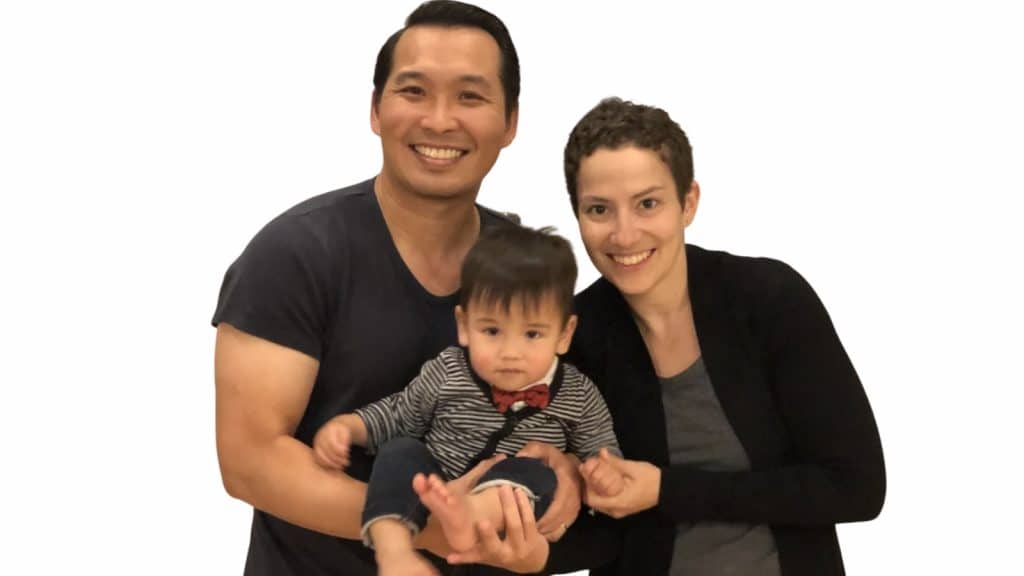Erica was diagnosed with breast cancer in December 2020 when her son was barely six months old.
Things were different because of COVID, too. Erica went to all her appointments alone. “It was a big deal, not having anyone to be there with me,” she said.
Erica heard about Gilda’s Toronto through her employer, who has supported Gilda’s Toronto for many years. In January 2021, she signed up for the Gilda’s Toronto support group for 20s and 30s, an eight-week Zoom program. She was having chemo at the time, and the last thing she wanted to do was interact with anyone, but it felt great to connect with other young people. She found it helpful to have one thing that she did every week, even if she wasn’t feeling well. She was often in her pyjamas.
Participants talked about everything — fear of recurrence, relationships, emotional health, transitioning, sex and sexuality, side effects management, and navigating healthcare systems.
The day I was diagnosed, I just cried all day. I didn’t want to talk to anyone, not even my husband. All I wanted to do was hold my son as tight as I could. It pained me to think how this diagnosis would affect him, and I wondered if I would beat this disease and be able to watch him grow up. I was so scared.
Erica has people in her family that she could talk to who lived through cancer. Her cousin had cancer when she was younger, and her mom had it too, but Erica felt she needed to find a connection with people her age who were going through it at the same time. It was comforting to know that she wasn’t the only one her age who was living with cancer.
Nobody could understand what I was going through unless they were going through something similar.
As a young mother in her 30s, Erica’s challenges were vastly different from those of people in their 60s with cancer. She was grateful that she had already had a child before her cancer diagnosis. She finds it so sad that some people will go through cancer treatment and find out they might not be able to have kids. Doctors don’t tend to discuss fertility as they are very focused on treating the disease.
Erica has two nieces, ages 10 and 7. The 10-year-old struggles with sad news (the older one got frightened hearing about Terry Fox in school and didn’t sleep for weeks), so Erica was worried about telling them the diagnosis. She was pleased to learn there was a Gilda’s Toronto support group designed for children aged 4-12; Kids Talk Out. Her nieces joined it, and it helped. They had a chance to ask questions, share their feelings, and talk about how cancer had affected them and their families.
Last fall, Erica joined the 20s and 30s group for the second time. She was going through another stage of her journey and needed the support of her peers once again.
Now Erica’s life has changed so much.
I am officially almost a year cancer-free, and I am putting the pieces of my pre-cancer life back together as best I can. I am back at work full time, and my son is in daycare. When he is home, I am devoted to spending all of my free time with him. He really did keep me going through my darkest times, and I am so grateful that I had him pulling me through this.
My son is now 21 months. It will be a while before I tell him about my cancer. He will wonder why I have no hair or eyebrows in photos from his first birthday party.
Erica wanted to give back to the Gilda’s Toronto community that had given her so much, all of it free of charge. She decided to put up a Facebook page asking people to donate on her birthday. She raised over $2,000 and was thrilled that other young people could get connected and experience the powerful benefits of Gilda’s Toronto support.
I found a group of people I can really connect with. We share our feelings of anger and sadness. I can say whatever I’m feeling at any moment. These are connections I know I can rely on for a lifetime.
Support programs like our 20s and 30s support group and others by making a donation today, find out more.

